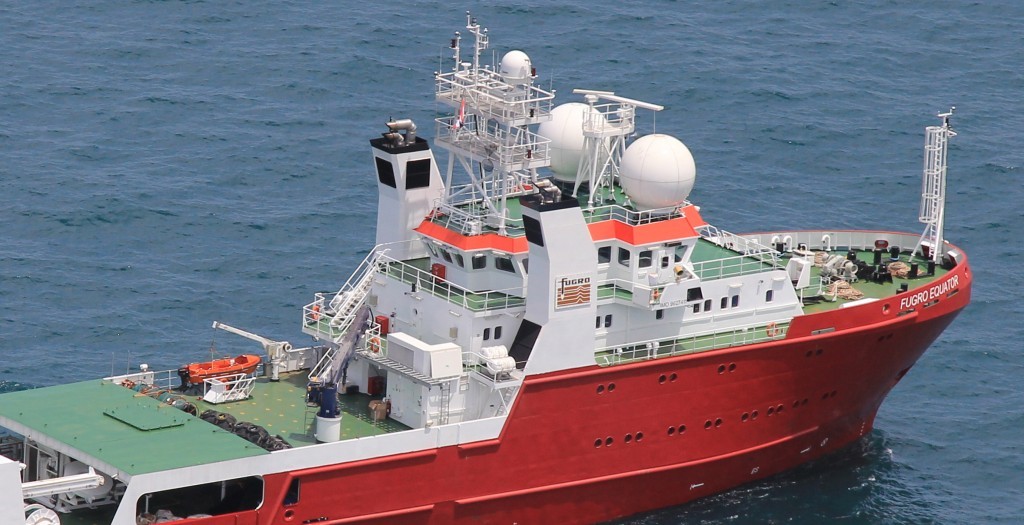
The captain of the Fugro ship involved in the search for missing Malaysia Airlines flight MH370 has spoken of his responsibility to help find the doomed aircraft.
Andreas Riyanto Mulyo, captain and team leader of the Fugro Equator vessel, said all those involved in the search were working to solve the mystery of what happened to the Boeing 777, that disappeared in March 2014 with 239 people on board, en route from Kuala Lumpur to Beijing.
Mulyo, an Indonesian, said: “”A lot of people are racing to find the story behind this. This is the biggest challenge in the sea.
“I think we’re getting closer, I pray for that day by day. A lot of families are waiting for this.”
“I want to be involved with this. I am not saying I will be the one who finds them, because I am not the expert… but day by day I pray that this vessel finds it.”
The Equator is one of the vessels currently involved in the massive search for the missing aircraft.
Australia today said debris recovered this month in Mozambique was “highly likely” to be from flight MH370.
Malaysia has called for a stepped up search of Africa’s coast for clues to the plane’s fate.
Official analysis found two pieces of debris were “almost certainly from MH370”, Australian infrastructure and transport minister Darren Chester said in a statement.
“That such debris has been found on the east coast of Africa is consistent with drift modeling … and further affirms our search efforts in the southern Indian Ocean,” Chester said.
Investigators believe someone may have deliberately switched off the plane’s transponder before diverting it thousands of miles off course, out over the Indian Ocean.
A search, led by Australia and one of the most expensive ever conducted, has focused on a 120,000-sq-km (46,330-sq-mile) band of sea floor in the remote southern Indian Ocean.
In 2015, French authorities said a wing part found on the Indian Ocean island of Reunion was part of the plane.
The Mozambique debris was examined by investigators from Australia and Malaysia, as well as specialists from Boeing, Geoscience Australia and the Australian National University in Canberra.
Malaysian Transport Minister Liow Tiong Lai said the coasts of South Africa and Mozambique should be searched and Malaysia wanted to send a team.
“We are currently awaiting approval from the South African authorities,” Liow said. “The coastal search will be by a Malaysian team and focused around South Africa and Mozambique.”
Liow, however, said the location of the underwater search need not be changed.
The latest piece of debris is a white, meter-long chunk of metal with “No Step” printed on it.
It arrived in Australia for testing this week, along with another piece of debris found in Mozambique soon after.